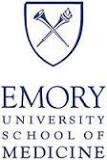Deep Brain Stimulation for Treatment Resistant Depression
| Status: | Recruiting |
|---|---|
| Conditions: | Depression, Major Depression Disorder (MDD) |
| Therapuetic Areas: | Psychiatry / Psychology, Pulmonary / Respiratory Diseases |
| Healthy: | No |
| Age Range: | 18 - 70 |
| Updated: | 11/9/2018 |
| Start Date: | September 2006 |
| End Date: | November 2019 |
| Contact: | Sinead Quinn |
| Email: | scquinn@emory.edu |
| Phone: | 404-727-9228 |
The purpose of the proposed study is to evaluate the safety, feasibility and efficacy of
chronic, high frequency stimulation of the subgenual cingulate white matter (Cg25WM) using
the ANS Totally Implantable Deep Brain Stimulation System as an adjunctive treatment for
severe treatment-refractory Major Depression in twenty TRD patients, and to investigate
potential mechanisms of action of this intervention.
chronic, high frequency stimulation of the subgenual cingulate white matter (Cg25WM) using
the ANS Totally Implantable Deep Brain Stimulation System as an adjunctive treatment for
severe treatment-refractory Major Depression in twenty TRD patients, and to investigate
potential mechanisms of action of this intervention.
Major Depression is one of the most common and costly of all psychiatric disorders. While
depression can be effectively treated in the majority of patients by either medication or
some form of evidence-based psychotherapy, up to 20% of patients fail to respond to standard
interventions. For these patients, trial-and-error combinations of multiple medications and
electroconvulsive therapy are often required (Kennedy and Lam 2003; UK ECT Review Group
2003). For patients who remain severely depressed despite these aggressive approaches, new
strategies are needed.
Specific Aim 1. To asses the safety and tolerability of acute and chronic Cg25-DBS.
Specific Aim 2. To assess the antidepressant efficacy of active Cg25-DBS in
treatment-resistant depressed patients.
depression can be effectively treated in the majority of patients by either medication or
some form of evidence-based psychotherapy, up to 20% of patients fail to respond to standard
interventions. For these patients, trial-and-error combinations of multiple medications and
electroconvulsive therapy are often required (Kennedy and Lam 2003; UK ECT Review Group
2003). For patients who remain severely depressed despite these aggressive approaches, new
strategies are needed.
Specific Aim 1. To asses the safety and tolerability of acute and chronic Cg25-DBS.
Specific Aim 2. To assess the antidepressant efficacy of active Cg25-DBS in
treatment-resistant depressed patients.
Minimum Eligibility Criteria
- Age 18-70 years old.
- Currently insured or receiving Medicare.
- Ability to provide written informed consent.
- Diagnosis of a Major Depressive Episode or Bipolar Type II - current episode depressed
- Current episode duration of at least 1 year
- Failure to respond to a minimum of four different antidepressant treatments.
- Failure or intolerance of an adequate course of electroconvulsive therapy (ECT) during
any episode.
- All patients must have an established outpatient psychiatrist and be willing to sign a
written release to allow study investigators to give and receive information from this
psychiatrist
- Willing to temporarily relocate to the Atlanta area for at least 3-4 months and return
for all required follow-up visits
We found this trial at
1
site
1648 Pierce Dr NE
Atlanta, Georgia 30322
Atlanta, Georgia 30322
(404) 727-5640

Phone: 404-727-9228
Emory University School of Medicine Emory University School of Medicine has 2,359 full- and part-time...
Click here to add this to my saved trials